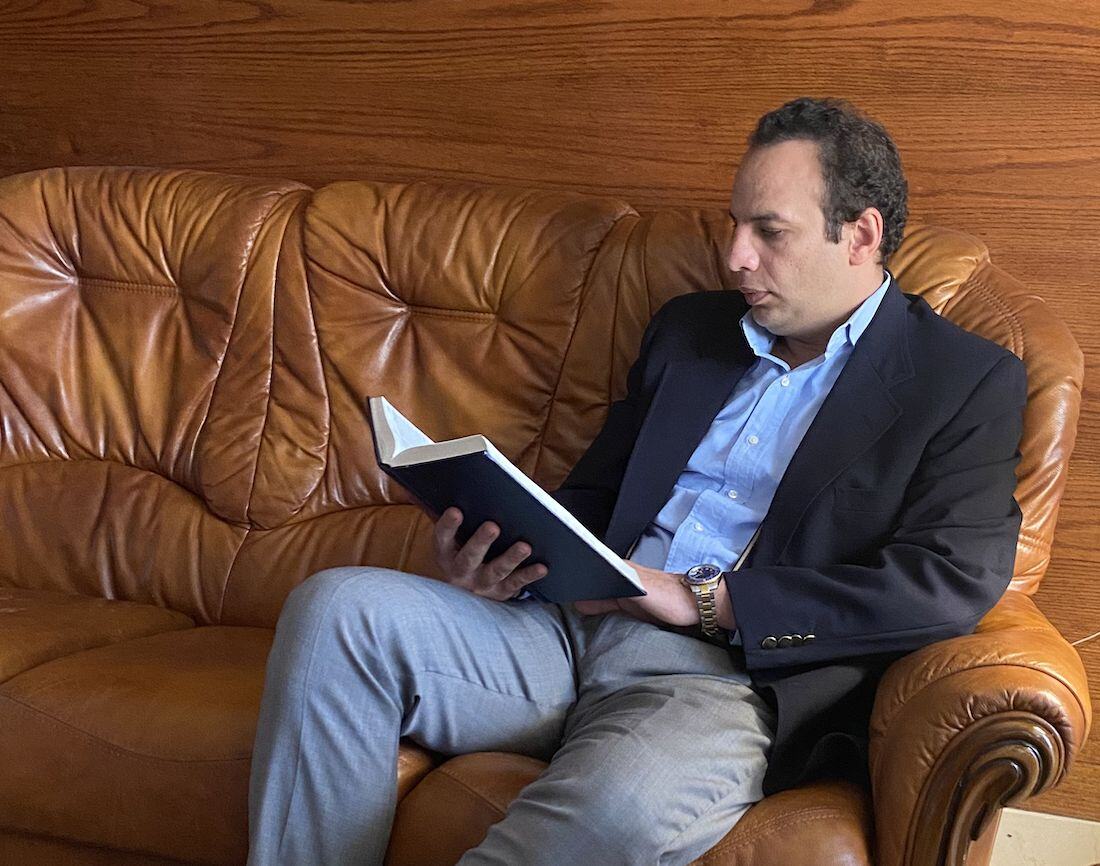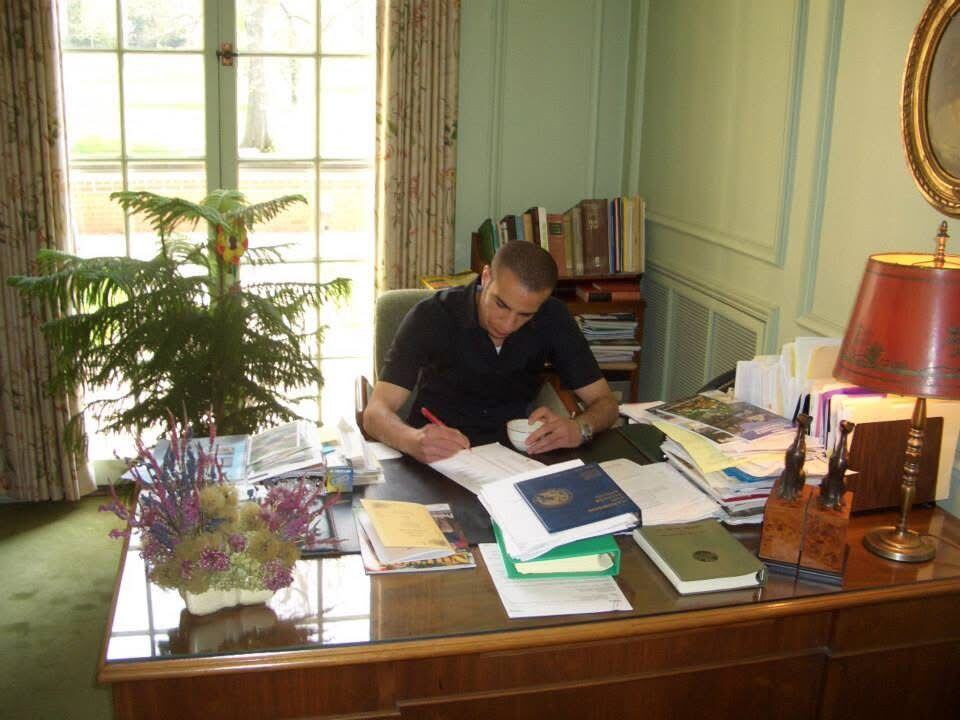
In Egypt, Osama Wahba stands out as one of the nation’s leading entrepreneurs, widely recognized for transforming traditional industries such as tailoring, shoe repair, and furniture restoration into scalable, structured, and modern business ventures. His work has made him synonymous with innovation, transformation, and global expansion through his efforts to transform the ordinary into the extraordinary.
Recognizing untapped potential in fragmented markets, Osama Wahba has built a reputation for modernizing overlooked sectors with operational efficiency and strategic growth. It has positioned him as a leader in business transformation. His ventures, including Mr. Tailor, Mr. Cobbler, and Mr. Sofa, have disrupted long-standing service industries, proving that with the right approach, even the most overlooked sectors can thrive in today’s global economy.
“I’m a reformer—I see potential where others see obstacles,” Wahba explains. “Unlike traditional business owners who simply replicate existing models, I focus on restructuring entire industries to make them more efficient and scalable.”
Wahba's entrepreneurial journey began with a keen observation—many industries in Egypt operated in an informal and outdated manner, offering inconsistent service, unreliable pricing, and limited customer satisfaction. Recognizing this inefficiency, he built structured business models that brought order, quality, and professionalism to sectors that had long been dismissed as stagnant.
By implementing standardized pricing, digital tracking systems, and customer-oriented service experiences, Wahba brought modernity to legacy industries and set a precedent for future businesses. He also used his advanced franchising model to revolutionize the franchising field and business.
His expertise in operational efficiency is one of the key pillars behind his success. In an industry where customer satisfaction hinges on speed and precision, Wahba ensured that his businesses implemented structured workflows and optimized service delivery.
Wahba began as a student at Cairo University, studying economics and political science, where his academic excellence soon impressed the US Department of State. He was selected and invited out of a large number of highly qualified contenders in the field to study at the University of South Carolina, as part of the scholarship through the U.S. State Department PLUS program
The scheme is highly competitive, and its keen interest in him based on his qualifications among thousands of other qualified candidates demonstrates Wahba’s superior expertise. He graduated summa cum laude with a bachelor’s degree in political science.
Gordon B. Smith is the director of the Walker Institute of International and Area Studies and a political science professor at the University of South Carolina. He recalls Wahba’s time as a staff assistant at the Walker Institute.
“He is driven by a keen intellectual curiosity, energy and enthusiasm,” Smith says. “We put his exceptional skills to work as a graduate assistant helping to organize numerous academic conferences, symposia and colloquia sponsored by the Walker Institute.”
The University of South Carolina also awarded several accolades to Wahba for his leadership and academic pursuits. Some of these include induction into the Golden Key International Honor Society, the National Scholars Honor Society, and the President’s Honor Roll. He has also participated in conferences, including the Student Leadership and Diversity Conference, the Middle East Peace Conference, and the Bringing the World Home Summit.
The Chevening Cambridge Scholarship selected and pursued Wahba and he completed his master of philosophy in politics at Cambridge University. He then began his studies for his PhD at Cambridge but returned to Egypt in 2011 at the beginning of the Egyptian Revolution to participate in the changes that would come.
Following the revolution, Wahba was selected to advise Egypt’s president and assembled a team of top Ivy League and Oxbridge graduates to support the country’s post-revolution reconstruction. As political avenues narrowed, he shifted his focus to entrepreneurship, recognizing new opportunities to drive meaningful change through business innovation.
His tailoring business, Mr. Tailor, revolutionized the clothing alterations market by introducing professional management systems, scalable operations, and premium customer service. His foresight allowed him to turn what was once an unstructured trade into a franchise-ready business that has expanded rapidly across Egypt and beyond.
Similarly, Mr. Cobbler disrupted the shoe repair and restoration industry, modernizing what was traditionally an informal business model. Before Wahba entered the market, shoe repair services were seen as unreliable and inconsistent: “Until then, the Egyptian clothing alterations market was fragmented, with a mix of small, old-fashioned, outdated, independent tailors,” he explains.
He introduced quality control mechanisms through his company, trained staff to ensure uniformity across locations, and provided a seamless customer experience that combined traditional craftsmanship with modern service standards.
His work in this field revitalized an underdeveloped market and created stable employment opportunities for skilled workers who previously operated without formal structures.
Mohamed Alaa Abdel-Moneim, Associate Professor with the Faculty of Economics and Political Science at Cairo University, celebrates Osama’s expertise in crafting business models for small companies that grew into scalable franchises.
“Mr. Wahba’s ability to translate complex economic vision into actionable, high-impact reform is both rare and proven. His leadership delivered measurable national results and reflects a deep understanding of strategic policy, stakeholder coordination, and institutional transformation.”Beyond his ability to transform businesses, Wahba has demonstrated exceptional leadership in scalability and international growth. He has successfully built companies that can be replicated across multiple locations, ensuring that each branch maintains the same level of service and efficiency: “My business didn’t just meet an existing need; it created a demand that no one knew was possible,” Wahba says.
By establishing an advanced franchise-based model that specifically tailored for traditional crafts and small businesses to overcome the problem of franchise freeriding, he has allowed his businesses to expand without compromising quality. He aims to take these businesses global, exporting his successful frameworks to other countries where traditional service industries lack modernization and efficiency.
Wahba’s approach to global franchising is rooted in a deep understanding of market trends and consumer behavior. He recognizes that a strong foundation of operational excellence and brand consistency is essential for scaling a business internationally.
By ensuring that each of his businesses is structured with clear guidelines, standardized service delivery, and a commitment to quality, he has positioned them for seamless replication in foreign markets.
Dr. Shereen El Sabagh is Chair of the Higher Advisory Committee of the Youth Leadership Development Program (YLDP) in Egypt. Sabagh notes how Osama’s business model not only addresses the problems of operating franchises, but solves them through innovative practices.
“These innovative franchising models are intended to address systemic inefficiencies, informal practices, and labor shortages, while simultaneously driving employment, industry revitalization, and enhanced market competitiveness.” Sabagh explains.
Osama’s ventures have already attracted attention from investors and business leaders looking to bring his franchise models to new territories, proving that his blueprint for business success is adaptable across different economic landscapes.

Mohsen Mahgoub, Vice Chairman and Managing Director of Ibnsina Pharma, is also a co-founder of Mis El-Kheir, one of Egypt’s largest non-governmental organizations. The organization’s Board of Trustees and Investment Committee assessed Disrupt Ventures' financial performance and saw promising numbers. As a result, the company has expressed interest in acquiring a 40% stake in Wahba’s companies.
Dr. Mohamed Alaa Abdel-Moneim is Associate Professor, Cairo University and the Assistant Minister of Planning and Economic Development.
He says: “With exceptional expertise in economic policy, strategic planning, and entrepreneurial innovation, Mr. Wahba exemplifies how innovative solutions can bridge economic gaps and drive sustainable development. His leadership at Mr. Tailor has modernized a traditional industry, created structured employment opportunities, and expanded economic inclusivity—perfectly aligning with modern economic reform principles."
His journey is not merely about financial success but also about creating a meaningful impact in the lives of workers and consumers alike. Wahba’s businesses have provided stable employment to hundreds of workers who were previously part of the informal labor sector, giving them structured wages, benefits, and career growth opportunities.
“For the first time, they receive a stable monthly salary instead of a precarious daily wage, allowing them to plan, save for essentials like an air conditioner or refrigerator, and even dream of something greater,” Wahba says.
The Honorable Hend Rashad is a member of the Egyptian Parliament and Secretary of the Culture and Mass Communication Committee. Rashad praises Osama’s employee training program for its creation of a pathway to success for employees.
“With a 94% job placement rate, program graduates earn 3.2 times higher than Egypt’s minimum wage and 1.6 times higher than the industry average, setting a new standard for fair wages and skilled employment,” Rashad says.
Osama’s focus on sustainability has also played a crucial role in his business models, encouraging repair and reuse over waste and contributing to environmentally responsible consumer habits. His work building scalable businesses is a testament to the idea that economic growth and social responsibility can go hand in hand.
A fundamental aspect of Wahba’s expertise lies in blending traditional craftsmanship with modern efficiency. He has shown that innovation does not always require reinventing an industry but refining its processes, improving its accessibility, and elevating its standards.
By leveraging technology and structured operations, he has breathed new life into previously considered outdated industries, proving that tradition and innovation coexist harmoniously.
His influence in the entrepreneurial world extends beyond his businesses. As a mentor and advisor, he has guided aspiring business leaders in identifying market inefficiencies, building scalable business models, and expanding their enterprises beyond their local markets.
“I’ve helped over ten entrepreneurs refine their business models,” Wahba says. “I’m part of the T20 group, an organization of Egyptian entrepreneurs who assist startups. I’ve also reviewed business plans, branding strategies, and fundraising pitches.”
His thought leadership has made him a sought-after expert in business transformation, and his success serves as a case study in how structure, vision, and strategic execution can redefine entire industries.
Ambassador Yasser Al-Naggar is Chair of the Middle East and Africa with Basilinna Consulting Firm. They were both part of the T20 Group, a prestigious economic and policy network, and through the Ministry of Planning, where Al-Naggar was previously Deputy Minister of Planning.
Ambassador Yasser Al-Naggar recalls: “He suggested, initiated, and led the formulation of Egypt’s 2030 Agenda, which is now widely recognized as Egypt Vision 2030—the nation’s official long-term strategic plan for economic and sustainable development.”
Wahba remains committed to expanding his global impact. With his businesses already setting new benchmarks in Egypt, he is focused on expanding his franchise models to international markets with similar industry gaps.
His goal is to create a network of high-quality service businesses that operate with the same level of professionalism and efficiency, regardless of location.
By applying the principles that have guided his success—structured operations, customer-centric service, and technological integration—he is poised to lead the next wave of industry modernization in global markets.
Osama Wahba’s journey in business reinvention underscores his ability to recognize untapped potential, introduce structure and scalability, and build businesses that transcend borders.
From a young political activist to a leading entrepreneur, Wahba has shown that transformation can take many forms: “Each stitch, each repair, each act of creation is a testament to the belief that transformation is not limited to grand gestures—it lives in the ordinary moments when we choose to rebuild instead of discard, to create instead of accepting the status quo.”
Osama has proven that even the most overlooked markets can evolve into thriving global enterprises with the right expertise.







